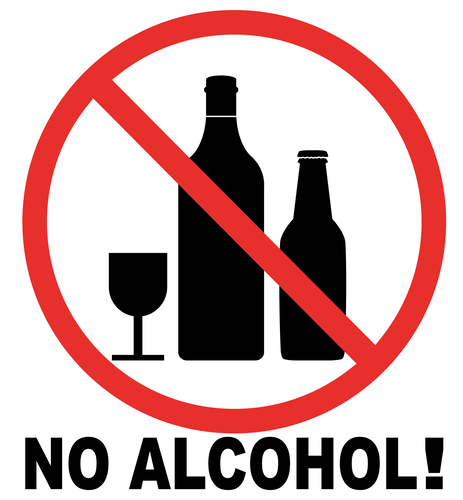The choice between an anticoagulant and an antiplatelet drug depends on the individual’s medical condition and the specific risk factors for clotting. It is essential for patients on these medications to understand their side effects and interactions, https://rufact.org/blog/2011/dec/31/samyie-ochevidnyie-otkryitiya-2011/ as they can vary widely among different blood thinners. For instance, some may cause prolonged bleeding, while others may interact with certain foods or medications. Blood thinners are medications used to treat and prevent blood clots.
Codeine Addiction: Codeine Overdose & Dangers
Avoiding the combination of blood thinners and alcohol is much more difficult for those addicted to alcohol. Even though it could be harmful, people who struggle with alcohol abuse may find themselves combining https://www.thefabliss.com/category/travel/page/16.html even though they know they shouldn’t. Having a drink or two every once in a while is probably fine when you’re on blood thinners — just be sure to talk to your doctor.
When Should You Get Medical Attention?
It’s also important to protect yourself when using knives, scissors, or yard equipment. Your doctor may tell you to limit your participation in contact sports to reduce the chance of bleeding. However, this doesn’t mean you can’t http://zonemed.ru/risk-vozniknoveniya-artrita-u-muzhchin-i-zhenshhin-zavisit-ot-raznyx-prichin/ exercise or live your day-to-day life. Swimming, walking, and jogging are excellent forms of exercise and are safe for most people taking anticoagulants. Discuss with your doctor which types of exercise may be best for you.
Why Are Blood Thinners Prescribed?
Blood thinners are medications that treat and prevent blood clots. Blood clots are semi-solid clumps of red blood cells, platelets, fibrin (a type of protein), and other proteins. People who take anticoagulant medications should use herbal supplements and teas with caution.
Moderate Alcohol Use and Reduced Heart Disease Risk
Additionally, alcohol can damage blood vessel linings, increasing the likelihood of clot formation and subsequent cardiovascular events. Patients on warfarin, a common blood thinner, are often advised to maintain a consistent intake of vitamin K to prevent fluctuations in medication efficacy. You may also need blood thinners if you have a heart or blood vessel disease, an irregular heart rhythm, lupus, or deep vein thrombosis (DVT). That’s a dangerous type of blood clot that often forms in the leg. Your risk of getting blood clots is also higher if you’re overweight, you’ve recently had surgery, or you have an artificial heart valve.
Most popular in Drugs
Our writers and reviewers are experienced professionals in medicine, addiction treatment, and healthcare. AddictionResource fact-checks all the information before publishing and uses only credible and trusted sources when citing any medical data. Excessive long-term alcohol intake can contribute to blood clot formation by increasing platelet levels and activation, leading to a higher likelihood of clotting. Blood clots are a natural part of the body’s response to injury mediated by platelets and clotting factors (fibrinogen, thrombin) in the blood. They halt bleeding by forming a plug at the vascular damage site. If you are concerned about enjoying a glass of wine after taking Aspirin, continue reading to learn about the risks and safety considerations of mixing alcohol and blood thinners.
Drugs & Supplements
Blood thinners are medications given to people with a high risk of dangerous levels of blood-clotting. The body needs blood to clot to prevent too much blood loss, but clotting that’s extreme can lead to blockages in arteries and blood vessels that cut off blood flow, leading to dangerous health issues. The amount of alcohol a person consumes daily contributes to how it affects blood and heart health. New research has found that moderate consumption, meaning one or two drinks per day, can decrease cardiovascular disease risk. While the mechanism behind why this happens is unclear, the theory is that this moderate consumption reduces stress reactivity in the brain. Research has found that alcohol affects the process of blood coagulation.
- Unsurprisingly, the main side effect of blood thinners is bleeding.
- But it’s important to learn about both before you start taking them.
- Increasing the level of blood thinners in the body can lead to an increased risk of bleeding.
- For further guidance on managing the side effects of blood thinners, patients are encouraged to consult their healthcare providers.
- Long-term effects of excessive alcohol consumption can be detrimental to blood and heart health.
- Always seek the advice of your physician or other qualified health provider with any questions you may have regarding a medical condition.
Talking to Your Healthcare Provider
In fact, combining blood thinners with alcohol, especially in heavy or regular drinkers, can lead to internal bleeding due to their synergistic effects. Therefore, it is advised that those taking anticoagulants minimize alcohol consumption to maintain the effectiveness of their medication and safeguard their health. Additionally, alcohol’s impact on the liver can lead to hematologic complications, affecting the body’s ability to manage bleeding and clotting ( source ). Doctors often prescribe anticoagulants to people who have been diagnosed with some form of heart disease. “Coagulate” is a medical term that means “to clot.” These blood thinners prevent blood clots by increasing the amount of time it takes your blood to clot.

These medications are intended to treat blood clots in people who have them or reduce the risk of them forming. Blood thinners do not actually reduce the size of existing clots, but they can enhance the body’s natural process for eliminating unhealthy blood clots. Ask your doctor if it’s safe for you to drink alcohol while taking blood thinners. Both alcohol and blood thinners like warfarin (Coumadin) thin your blood.
